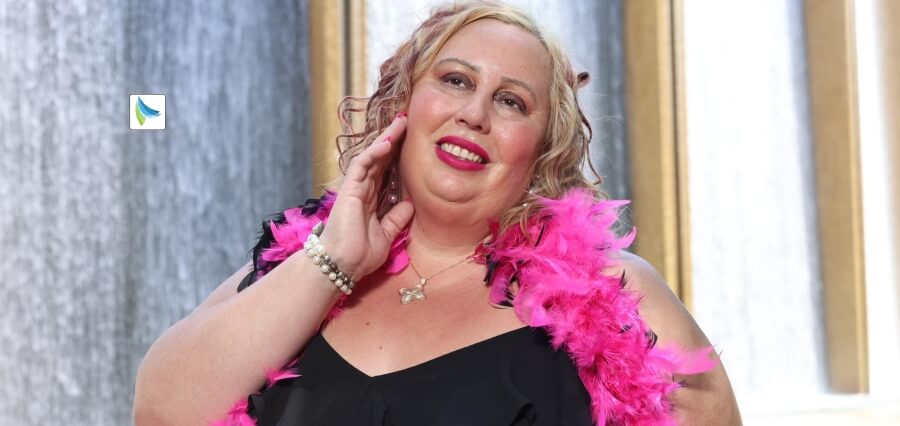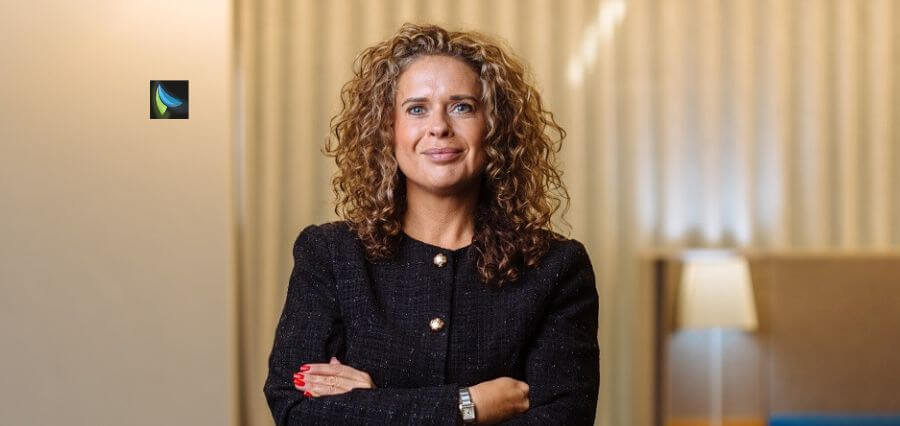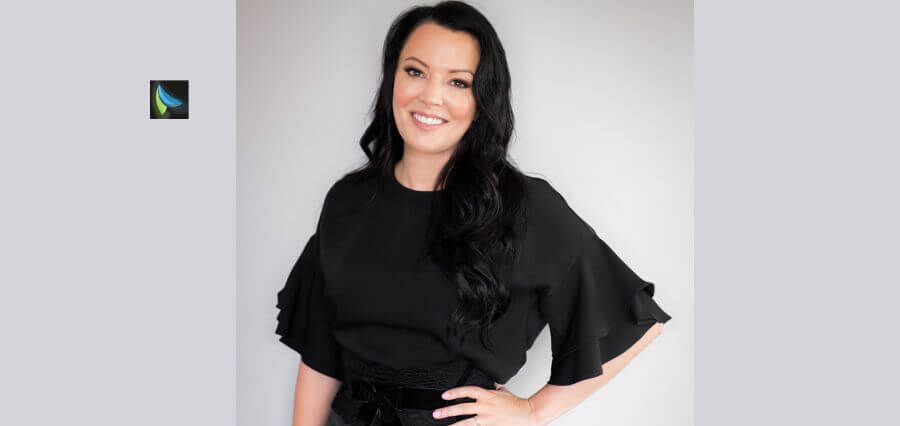Navigating Challenges, Inspiring Growth!
Leaders stitch their lives perfectly together and work hard for everything they want. These business leaders are in a position that they’ve dreamed about far ago. Managing people is equally hard with the management team to design a series of bespoke KPIs. Thus, it is important to have an exceptional HR on the blend of the quantitative and the qualitative. Mona Mohammed Fekri is one HR leader who understands what colleagues need to stay before they consider leaving the organization.
Mona’s story is one of continuous learning and growth. Her commitment to fostering a positive work culture, implementing transformative HR initiatives, and staying at the forefront of industry trends sets her apart as a true trailblazer. As we delve into Mona Mohammed Fekri’s insights and experiences, we gain valuable insights into the dynamic world of human resources and the qualities that define its exceptional leaders.
Career Journey
Mona’s career journey has always been driven by a passion for meaningful human interaction and a deep curiosity about the factors that drive individuals to succeed. As she pursued further studies and explored diverse opportunities around the world, she consistently sought out experiences that allowed me to both learn from others and contribute her own insights.
Mona firmly believes in the significance of people-centric roles, and this belief led her to embrace the role of Chief Human Capital Officer at Ducab. In this position, she has the privilege to forge meaningful and enduring relationships with colleagues, continuously acquire new knowledge, and tackle complex challenges that hold profound importance to the individuals to collaborate with.
To excel in this role, one must possess a natural empathy for people and a genuine fascination with understanding their motivations while unlocking their full potential. It’s a captivating challenge because each person has a unique blend of experiences and aspirations. Moreover, in a world that is constantly evolving, effective workforce management requires adaptability and modernization. Mona firmly holds the belief that the field of human resources is best suited for individuals who are adaptable, driven by ambition, and recognize that within any organization, no resource is more vital than its people.
Fostering Talent and Compliance
At Ducab, the team has a multifaceted approach to attracting and retaining top talent while ensuring compliance with labor laws and regulations. The organization understands the pivotal role that a vibrant company culture plays in this process. To create a mutually beneficial relationship between the company and its workforce, it emphasizes equality and balance.
The colleagues are provided with a clear understanding of both what the organization expects from them and what they can expect from us. This includes support, rewards, training opportunities, honesty, and transparency. Striking this equilibrium ensures that the talent retention and attraction strategies organically succeed, making Ducab an appealing workplace where individuals not only want to join but also thrive.
The team is committed to ongoing innovation in this area. An example of it is recent initiatives is the launch of the Youth Council, aimed at fostering a vibrant and inclusive community while actively involving young employees in the decision-making processes within the company.
To ensure compliance with labor laws and regulations, it maintains close collaboration with legal experts. It values its informed counsel, translating it into practical changes and enhancements in the working practices when necessary. This proactive approach is integral to upholding the integrity of our exceptional human resources function.
Navigating Employee Relations Challenges
While Mona is committed to maintaining confidentiality when it comes to specific employee relations issues, she provides insight into the types of challenges that the HR team frequently addresses. The challenges typically encompass a wide spectrum, ranging from personal to professional matters, often intertwining both aspects.
As an organization, the primary goal is to ensure that the company offers robust support to the colleagues at work, irrespective of the nature of the issue they may be facing. One critical area of focus for her team is promoting health and well-being, recognizing the universal significance of this aspect in the realm of HR. Additionally, colleagues often seek guidance from the Human Resources department to strike the right balance between their professional responsibilities and personal lives. This has prompted the company to advocate vigorously for flexible and remote working options at Ducab, aligning with the evolving needs of the workforce.
Navigating HR Excellence
Effectively measuring the impact of HR programs and initiatives requires a balanced approach, combining quantitative and qualitative metrics. While data is essential, interpreting its meaning holds even greater significance. At Ducab, we have taken proactive steps to evaluate the effectiveness of the HR efforts by establishing a set of customized Key Performance Indicators (KPIs). These KPIs cover various aspects, including team performance and turnover, and are regularly reviewed and benchmarked in collaboration with the management team.
In addition to traditional metrics, Ducab highly values employee feedback, particularly through Engagement surveys. However, one particularly intriguing mechanism we’ve implemented is the concept of ‘communication champions.’ This approach focuses on understanding the evolving needs of colleagues well in advance of any potential issues, ensuring that we proactively address concerns and prevent situations where employees may contemplate leaving.
In summary, while metrics are essential, they should never overshadow the fundamental principle that employees are individuals with unique needs. People always come first, and the HR strategies reflect this core belief.
Regarding organizational change, it indeed plays a pivotal role in shaping a company’s trajectory, and Ducab is no exception to this dynamic. Managing organizational change effectively is a testament to a company’s authenticity and commitment to its values. In Mona’s experience, four guiding principles have been critical:
- Helping People Understand the Need for Change: Rather than imposing change, HR must work collaboratively with management to elucidate the necessity for change. This involves making a compelling case for change and cultivating a collective desire to drive it.
- Clarifying the Post-Change Vision: Employees need a clear picture of what the organization will look like after the change and how it will impact them individually. Demonstrating that the company will emerge stronger is essential to garnering support.
- Managing Change Fairly and Transparently: HR should take ownership of the change process, providing affected employees with a well-defined path. Managing expectations and demonstrating a commitment to accommodating employees in the new structure, whether through upskilling, relocation, or retraining, is crucial.
- Emphasizing Empathy and Understanding: Above all, change management requires empathy and understanding. Acknowledging the challenges employees may face and offering support and guidance are essential components of this process.
Building a Thriving and Inclusive Work Culture
Fostering a positive and inclusive work culture at Ducab is at the heart of organizational values and performance. The company has implemented several initiatives and practices to achieve this:
- Engagement Calendar: Ducab maintains an annual engagement calendar designed to facilitate interaction and support among employees at all levels. This structured approach ensures that employees have opportunities to engage with each other, fostering teamwork and collaboration.
- Respect for Diversity: Ducab places great emphasis on respecting different cultures within the organization. To celebrate this diversity, the team established volunteering teams that organize cultural events and celebrations. This not only promotes inclusion but also creates a sense of belonging among employees.
- Adaptation during the Pandemic: The COVID-19 pandemic reshaped the way leaders interact with employees and how colleagues connect with one another. The company swiftly adapted to this new reality, remaining flexible and open to innovative ideas from across the organization. This adaptability has reinforced the commitment to maintaining an accessible and involved leadership team.
- Joint Responsibility for Culture: The team firmly believes that company culture cannot be delegated or compartmentalized. It is a collective effort that involves both colleagues and management. Everyone shares the responsibility for creating and maintaining a positive and inclusive culture.Regarding employee training and development programs, the team recognizes that they play a pivotal role in shaping the organizational culture and represent a long-term investment in the employees’ careers and aspirations. The approach combines standardization and personalization:
- Standardized Training: The company offers core training programs that everyone within the organization is expected to undertake. These standardized programs provide a shared understanding of essential skills and knowledge, ensuring that the employees are equipped with a common skill set.
- Personalized Approach: In addition to standardized training, it adopts a personalized approach. This involves tailoring specific courses or programs to individual employees, allowing them to enhance their skills in areas aligned with their career goals and interests. Empowering employees to take control of their career development is a key aspect of the approach.
Staying Current with Trends and Best Practices
When it comes to remaining at the top of your game, Mona believes it is vital to be open to new ideas, insights, and ways of working. Online resources, including discussions, webinars, panels, and roundtables, help ensure that, as HR professionals, we are well-connected and sharing best practices, and formal training programs and certifications add a further layer of support.
Insights and Advice for Aspiring HR Leaders
Mona loves the opportunity to make people’s working lives better, even in a small way. It is deeply rewarding. She gets to cooperate with a variety of people from across the business – and every interaction is a learning opportunity. In terms of the advice she can offer, there are three areas that stand out for her.
Firstly, HR is evolving very quickly. Technology is reshaping the future of the industry, and the great CHCOs of tomorrow will need to digitize the processes and understand how it can support them to be better and smarter.
Secondly, you will never be able to take the person out of personnel, so to flourish in a human resources role, you need to be open, fair, understanding, and willing to listen. Establish a core set of values for yourself early in your career and apply them to the scenarios you face.
Finally, always be willing to learn. Mona firmly believes there is always room to learn and to grow. Value any learning experience. It will help ensure you are better placed to provide the solutions of tomorrow.



















